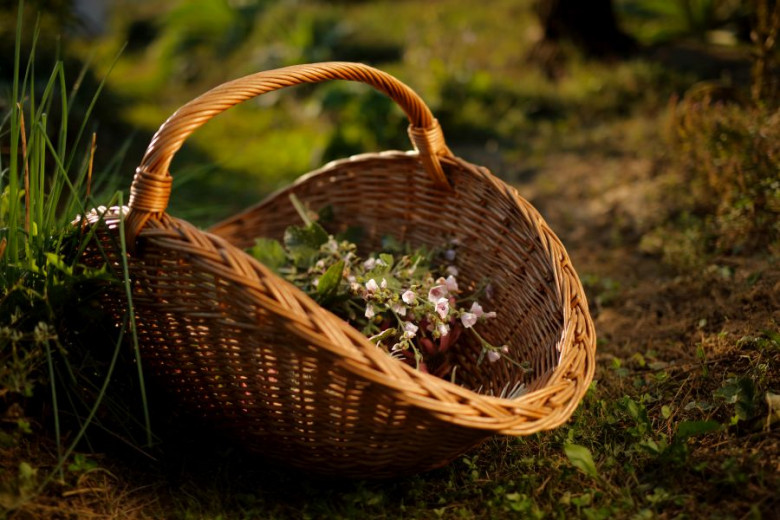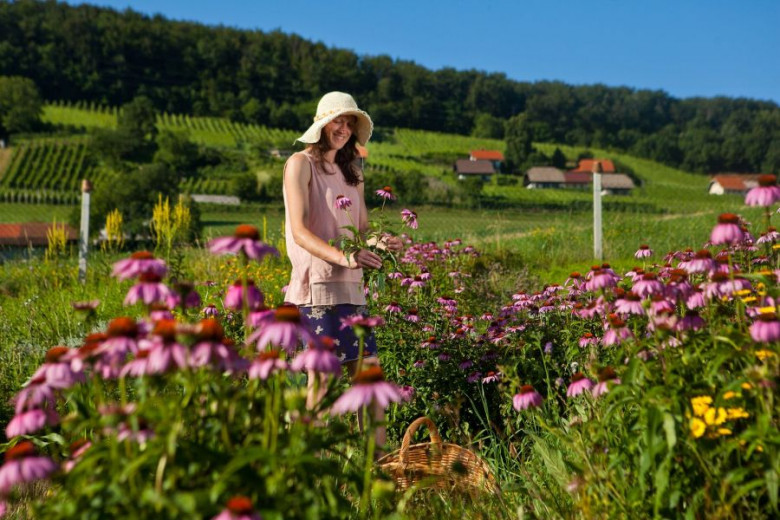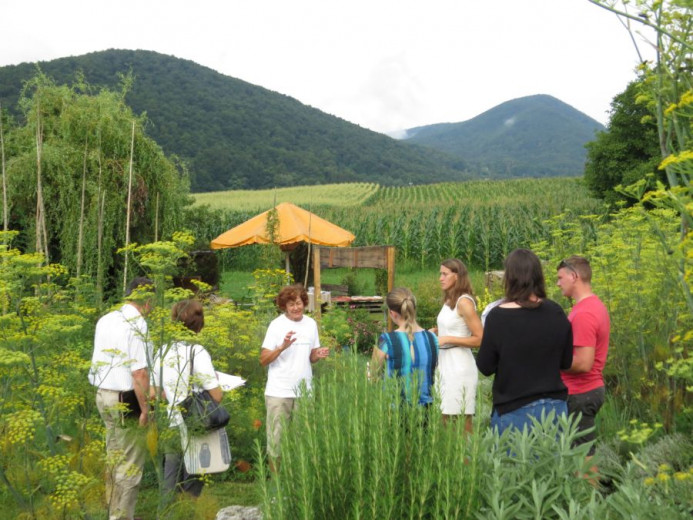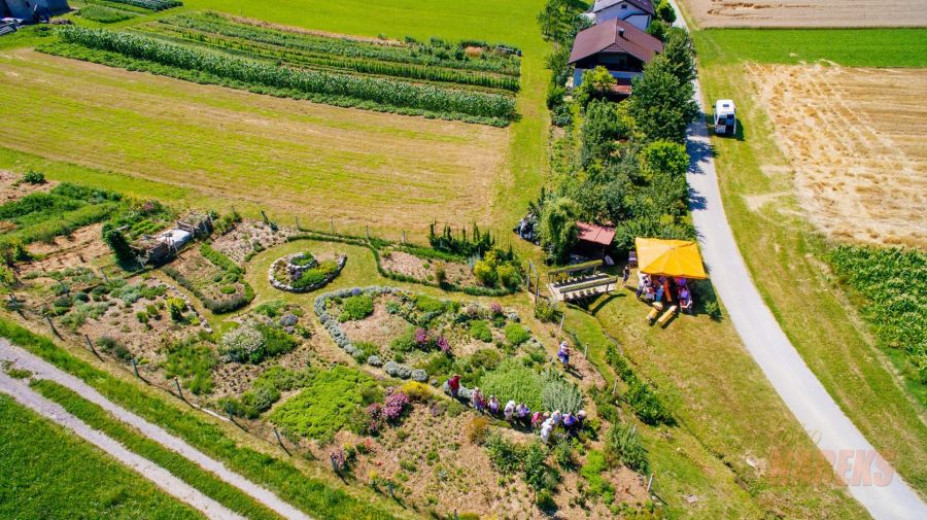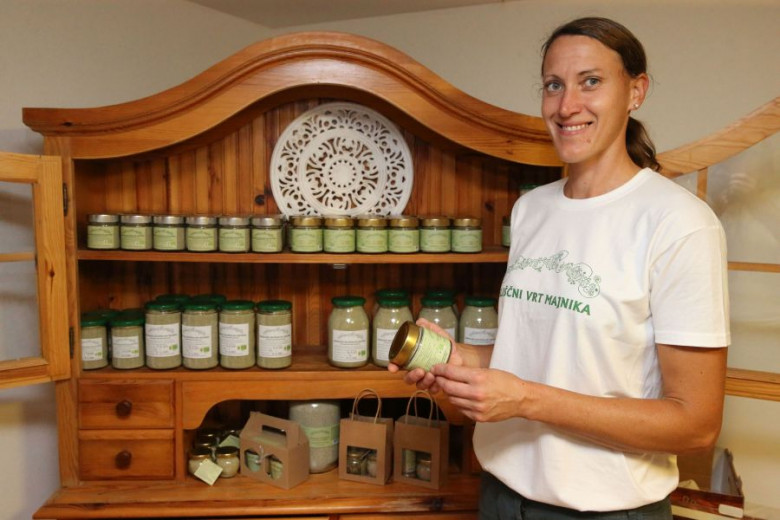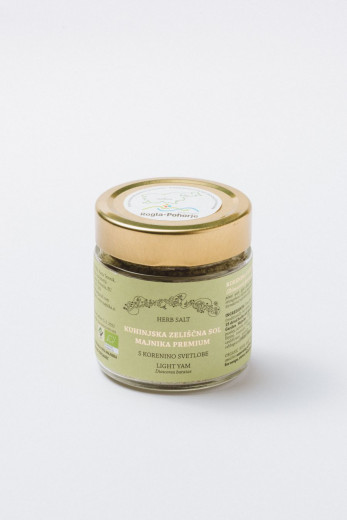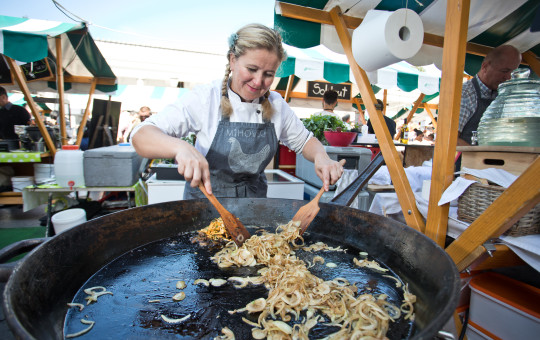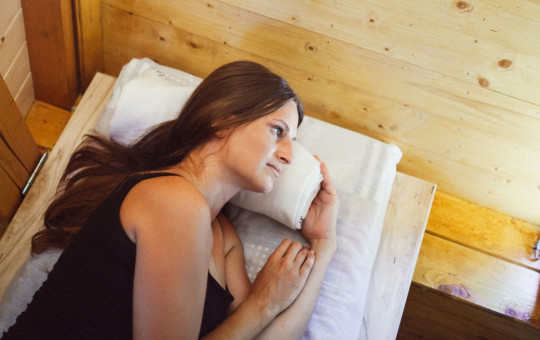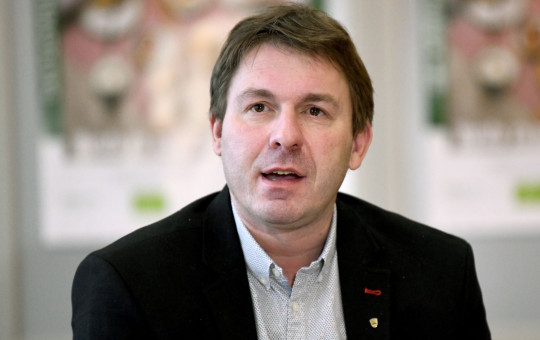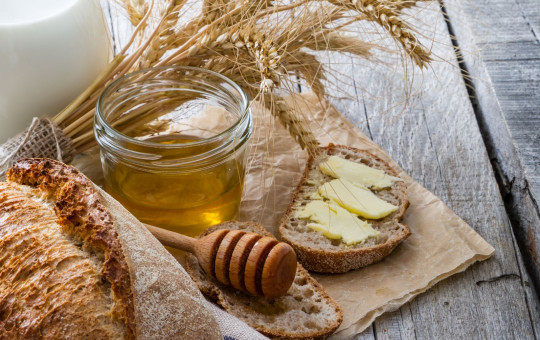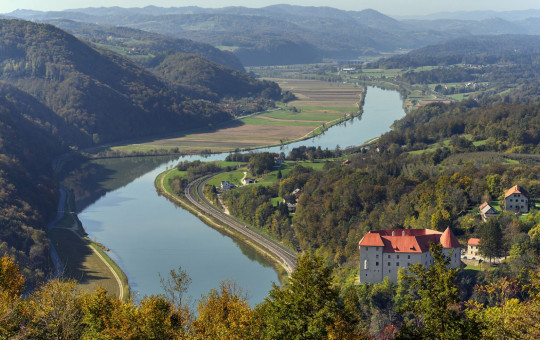Katja Temnik is a former captain of Slovenia’s basketball team. Spending three years in Spain and another three in Italy as a basketball player, she never imagined that her new career after returning to Slovenia would be in agriculture. Now she is a successful herbalist and biodynamic farmer, which led to her receiving the 2019 Innovative Farmer title.
The Union of Slovene Youth in Rural Areas, in cooperation with the Chamber of Agriculture and Forestry (KGZS), organised the 12th all-Slovenian Innovative Young Farmer selection in 2019.
The expert committee selected Igor Paldauf from Vučja vas, while Katja Temnik from Žiče was the winner of the online poll.
Katja is very proud of this achievement: "The highest number of votes received at the Innovative Young Farmer competition organised by the KGZS together with the Union of Slovene Youth in Rural Areas is an extraordinary and unexpected recognition. Although it may not always seem so, Slovenians have proven their high appreciation of organic farming and farmers who, through their work, show a respectful attitude not only toward their crops, but also toward our tradition and our connection to the land, nature and the environment. The award is a great incentive and proof that we are on the right track."
Majnika herb garden
The garden dates back to 2004, when her mother Majda retired and began planting herbs and growing sprouts, became a local tourist guide and took up using biodynamic farming methods. She did all this out of a joy and interest in this kind of cooperation with nature. She then passed her expertise onto her daughter.
In Katja’s words: "My mother is an extraordinary treasure chest of working and living experience. A chemical technology engineer by profession, she worked in the development departments of large companies and as a secondary school teacher for the last few years of her career, as well as a local tourist guide. She is very knowledgeable and all of this is invaluable for our business, because she taught us how to create and develop processes. For example, she has developed a means of organic sprout production that I believe is the best in the world. I hope we get a chance to verify it scientifically. It is true that a lot of manual labour is required, but this – the active participation and interest of the person who works, who creates – is one of the essential factors for the quality of the food produced. Healthy food for people can be made only by people; machines and factories cannot do it."
They want to set up their farm so that it will include, in addition to basic production and processing, permanent or temporary accommodation for people of different ages and interests.
The aim is to create a quality living and working environment – the former for pensioners and people living on the farm and commuting to work, the latter for workers on the farm.
This living community would be as self-sufficient as possible, meaning that most of the food and energy would be produced on the farm and one of the members would take care of the food. Anyone would be able to take part in the farm work, in the cultivation of herbs and vegetables.
-
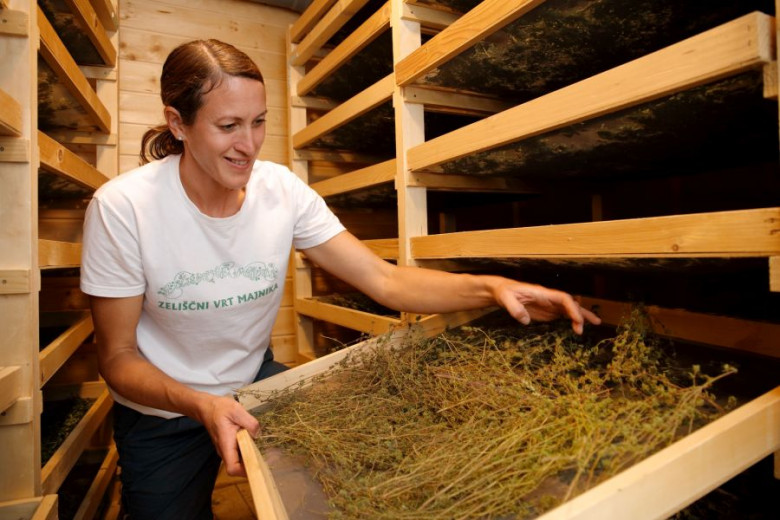
The farm has two full-time employees helped by Katja’s retired mother, while machine services are rented. They have many occasional helpers because there is plenty of work, but also plenty of people interested in helping. Photo: Miha Matavž Photo& Video - Dan Briški, Rogla-Pohorje.
-
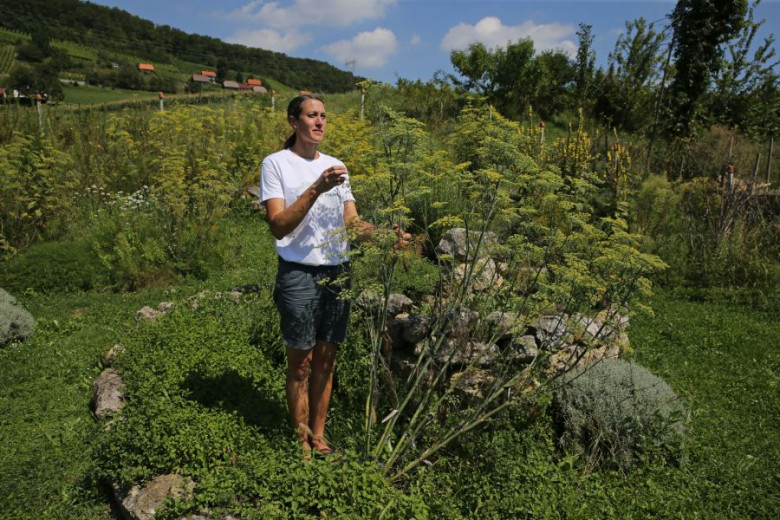
Katja dreams big and she has goals. Photo: Personal archives.
Such a community is based on relationships that show respect for each resident as an individual with their own needs and abilities, while all the residents contribute to the quality of life and work on the farm.
In addition, the farm would offer accommodation for persons on either shorter or longer vacations.
They will offer the opportunity to stay in the peaceful haven of a biodynamic farm with high biodiversity and top quality food, as well as various training courses, seminars and therapies by trained professionals (e.g. healing eurhythmics, bioresonance, and exercises for cardiac patients, etc.).
The farm would also like to welcome vulnerable groups.
It will be a farm with added value, showing visitors that even in these modern, extremely fast-paced and stressful times, it is possible to live differently: living and working in harmony with nature, enjoying good-quality food that gives us the power to develop all our potential, and benefiting the wider community by understanding one another and knowing people’s realistic potential to contribute.
Although Katja is aware that this will be a significant challenge in terms of organisation as well as finance, she is convinced that it is worth a try. As she says, "Each new crisis or state of emergency makes it clearer that we need to transform our way of life in order to survive as individuals and humanity. I am not an advocate of revolutions but of gradual transformation in the spirit of Friedrich Schiller – replacing the wheel while the cart moves. This is a great challenge, but one we are capable of dealing with."
Their first customers were family members and friends, work colleagues and acquaintances. Most of them have remained regulars. Katja says that things have changed in the recent years: "They are now mostly our regular customers who have made our products (kitchen herbal salt, herbal teas and sprouts) part of their everyday diet. These customers are well aware that quality food is very important for their health and development. And our range of customers grows precisely because of the spread of this awareness in society."
She is certain that agriculture can be a source of livelihood in Slovenia as well: "Definitely. However, some conditions have to be met first. Firstly, it should be a way of life, not a conventional job, because a farm requires your full dedication. Secondly, the farm must be multifunctional, which means that in addition to production and processing, it sells finished products and provides services, which generates the highest added value. And thirdly, as a farmer you should constantly develop, enhance your understanding of the processes in nature, have a respectful attitude and interest in people, animals and plants – because nature will appreciate it and reward you with an abundance of crops."
Social and climate change show us the new way
Challenges will not run out because Katja is very ambitious: "We want to develop the production and processing of Slovenian organic herbs, to create a self-sufficient biodynamic farm for cohabitation and rest, to join Slovenian organic herb growers in a cooperative and to develop the concept of (small) herb farms that can generate high added value and offer good jobs in rural areas, to work as mentors in transferring knowledge among Slovenian farmers. There are many possibilities to explore. Above all, I want to develop a biodynamic farming style that, in my own experience, opens an invaluable potential for the agriculture of the future, in times of great climate and social change that have already begun and that reveal the powerlessness of the too deeply ingrained practices of conventional farming and general narrow-minded unrestrained hunger for accumulating profits."
Date: 2. April 2020
Time to read: 4 min

